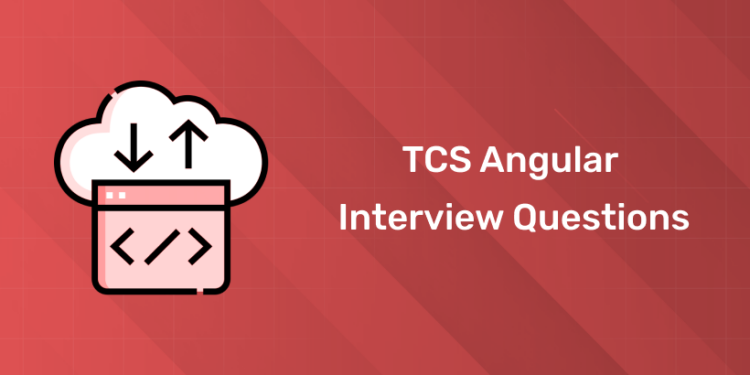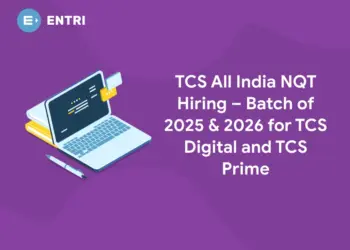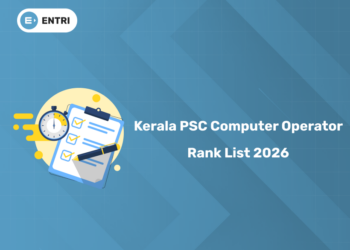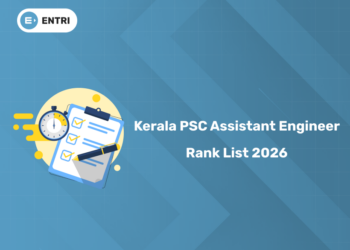Table of Contents
Preparing for your TCS Angular interview questions? Then congrats! You have come to the right page. Here we’ll cover commonly asked Infosys Angular interview questions to help you succeed, explore TCS as a great place to work, and share essential tips to help make things easier.
Learn Full Stack Development with expert mentors! Get Free Demo Here!
Introduction
Angular is a widely used front-end framework for building dynamic web applications, and Tata Consultancy Services (TCS) frequently hires skilled Angular developers. If you are preparing for an Angular interview at TCS, this guide will provide a detailed look into the interview process, commonly asked Angular questions, and best practices to help you succeed.
Understanding the Interview Process at TCS
1: Which of the following is a JavaScript framework/library?
The TCS Angular interview process generally consists of the following rounds:
1. Online Assessment (Technical Aptitude)
- Tests problem-solving skills, logical reasoning, and basic Angular knowledge.
- Covers JavaScript, TypeScript, and front-end programming concepts.
2. Technical Interview
- Focuses on Angular framework concepts, JavaScript, TypeScript, and real-world project discussions.
- May involve coding exercises related to data binding, components, and routing.
3. HR Interview
- Evaluates communication skills, career aspirations, and cultural fit.
- Discussion about previous projects, work experience, and behavioral questions.
🚀 Start Coding Today! Enroll Now with Easy EMI Options. 💳✨
Get Hired as a Full-Stack Developer: Master the Skills Employers Are Looking For!
Start Learning With EMI Payment OptionsTCS Angular Interview Questions
Below are some frequently asked Angular interview questions along with detailed answers.
Basic Level Questions
Q1. What is Angular?
Answer:
Angular is an open-source, TypeScript-based framework developed by Google for building single-page applications (SPAs). It follows a component-based architecture and provides built-in support for dependency injection, routing, and state management.
Q2. What are the key features of Angular?
Answer:
- Component-based architecture
- Two-way data binding
- Dependency injection
- Directives and templates
- Routing and navigation
- Lazy loading for performance optimization
- RxJS for reactive programming
Q3. Explain the difference between AngularJS and Angular.
Answer:
| Feature | AngularJS (1.x) | Angular (2+) |
|---|---|---|
| Language | JavaScript | TypeScript |
| Architecture | MVC Pattern | Component-Based |
| Performance | Slower | Faster with AOT Compilation |
| Mobile Support | No | Yes |
Learn Full Stack Development with expert mentors! Get Free Demo Here!
Intermediate Level Questions
Q4. What is Data Binding in Angular?
Answer:
Data binding synchronizes data between the model (component) and the view (UI). Types of data binding:
- Interpolation:
{{ expression }} - Property Binding:
[property]="value" - Event Binding:
(event)="method()" - Two-way Binding:
[(ngModel)]="data"
Q5. What are Angular Directives?
Answer:
Directives are used to extend HTML functionality.
- Structural Directives:
*ngIf,*ngFor,*ngSwitch - Attribute Directives:
ngClass,ngStyle - Custom Directives: User-defined to create reusable logic.
Q6. What is Dependency Injection (DI) in Angular?
Answer:
Dependency Injection (DI) is a design pattern that allows components to receive dependencies instead of creating them manually.
- Helps in code reusability and modularity.
- Implemented using the @Injectable() decorator.
Advanced Level Questions
Q7. What is RxJS, and why is it used in Angular?
Answer:
- RxJS (Reactive Extensions for JavaScript) is a library used for reactive programming.
- Helps manage asynchronous data streams efficiently.
- Used with HTTP calls, event handling, and reactive forms.
Q8. Explain Lazy Loading in Angular.
Answer:
Lazy Loading helps improve application performance by loading modules only when needed.
Example:
Q9. What are Angular Pipes? How do you create a custom pipe?
Answer:
Pipes transform data in templates. Example: {{ price | currency }}
Custom Pipe Example:
Q10. What are Guards in Angular?
Answer:
Guards restrict access to routes based on conditions.
Types:
- CanActivate: Checks before activating a route.
- CanDeactivate: Checks before leaving a route.
- Resolve: Fetches data before route activation.
- CanLoad: Prevents lazy module loading if conditions aren’t met.
Tips & Best Practices for Angular Interviews at TCS
To increase your chances of success in a TCS Angular interview, follow these key strategies:
1. Master Angular Fundamentals
- Understand core Angular concepts like components, directives, services, and dependency injection.
- Be proficient in TypeScript, as it’s widely used in Angular.
2. Practice Real-World Coding Problems
- Work on small Angular projects to gain hands-on experience.
- Solve problems related to data binding, forms handling, and routing.
3. Learn Common Design Patterns & Best Practices
- Use Lazy Loading for better performance.
- Follow Modular Architecture and best coding practices.
4. Stay Updated with the Latest Angular Versions
- TCS may ask about new features introduced in Angular.
- Read the official Angular documentation and participate in community discussions.
5. Mock Interviews & Time Management
- Practice mock interviews to build confidence.
- Explain your thought process clearly while coding.
6. Be Ready for Conceptual & Hands-On Coding Questions
- Prepare for both theoretical questions and practical coding challenges.
- Revise JavaScript, TypeScript, and RxJS to strengthen your problem-solving skills.
Conclusion
Preparing for an Angular interview at TCS requires a strong grasp of fundamental and advanced concepts. By practicing these frequently asked questions, improving coding skills, and following best practices, you can increase your chances of success.
Stay consistent, keep learning, and refine your skills to secure your dream job at TCS!
Learn Full Stack Development with expert mentors! Get Free Demo Here!
🚀 Start Coding Today! Enroll Now with Easy EMI Options. 💳✨
Get Hired as a Full-Stack Developer: Master the Skills Employers Are Looking For!
Start Learning With EMI Payment OptionsFrequently Asked Questions
What is the interview process for an Angular Developer role at TCS?
The TCS Angular interview process typically includes:
- Online Assessment – Covers JavaScript, TypeScript, and basic Angular concepts.
- Technical Interview – Focuses on Angular framework, coding exercises, and project discussions.
- HR Interview – Evaluates communication skills, career aspirations, and cultural fit.
What technical skills are required for an Angular Developer at TCS?
Candidates should have strong knowledge of:
- Angular Framework (components, directives, services, RxJS)
- JavaScript and TypeScript
- HTML, CSS, and Bootstrap
- RESTful APIs and HTTP Client in Angular
What are some common Angular topics covered in the TCS interview?
TCS often asks about:
- Component-based architecture
- Dependency Injection and Services
- Routing and Lazy Loading
- Reactive Programming using RxJS
- State Management (NgRx or BehaviorSubject)
What JavaScript concepts should I prepare for the Angular interview at TCS?
Strong understanding of:
- ES6+ Features (let, const, arrow functions, spread/rest operators)
- Closures and Scope
- Promises and Async/Await
- Event Delegation and DOM Manipulation
Does TCS ask about TypeScript in the Angular interview?
Yes, since Angular is TypeScript-based, expect questions on:
- Interfaces and Type Aliases
- Decorators (@Component, @Injectable, @Input, @Output)
- Generics and Modules
- Type Inference and Optional Properties
What kind of coding problems can I expect in the TCS Angular interview?
You may be asked to:
- Build a simple Angular application (CRUD functionality)
- Implement form validation using Reactive Forms
- Create a custom directive or pipe
- Optimize an Angular application for performance
What are some real-world scenario-based questions asked in the interview?
- “How would you improve the performance of a slow Angular application?”
- “How do you handle authentication and authorization in Angular?”
- “What is Lazy Loading, and how would you implement it in a project?”
Does TCS ask about Angular testing in the interview?
Yes, TCS may ask about:
- Unit testing with Jasmine and Karma
- Writing test cases for Angular components and services
- Mocking dependencies using TestBed
How can I prepare for the TCS Angular interview?
- Revise core Angular concepts – Components, Services, Directives, and RxJS.
- Practice coding exercises on platforms like LeetCode and GitHub.
- Build a small project to showcase hands-on experience.
- Study design patterns and best practices in Angular development.
What resources can help me prepare for the TCS Angular interview?
- YouTube Tutorials – Traversy Media, Academind
- Practice Coding – LeetCode, CodeWars
- Mock Interviews – Pramp, InterviewBit












